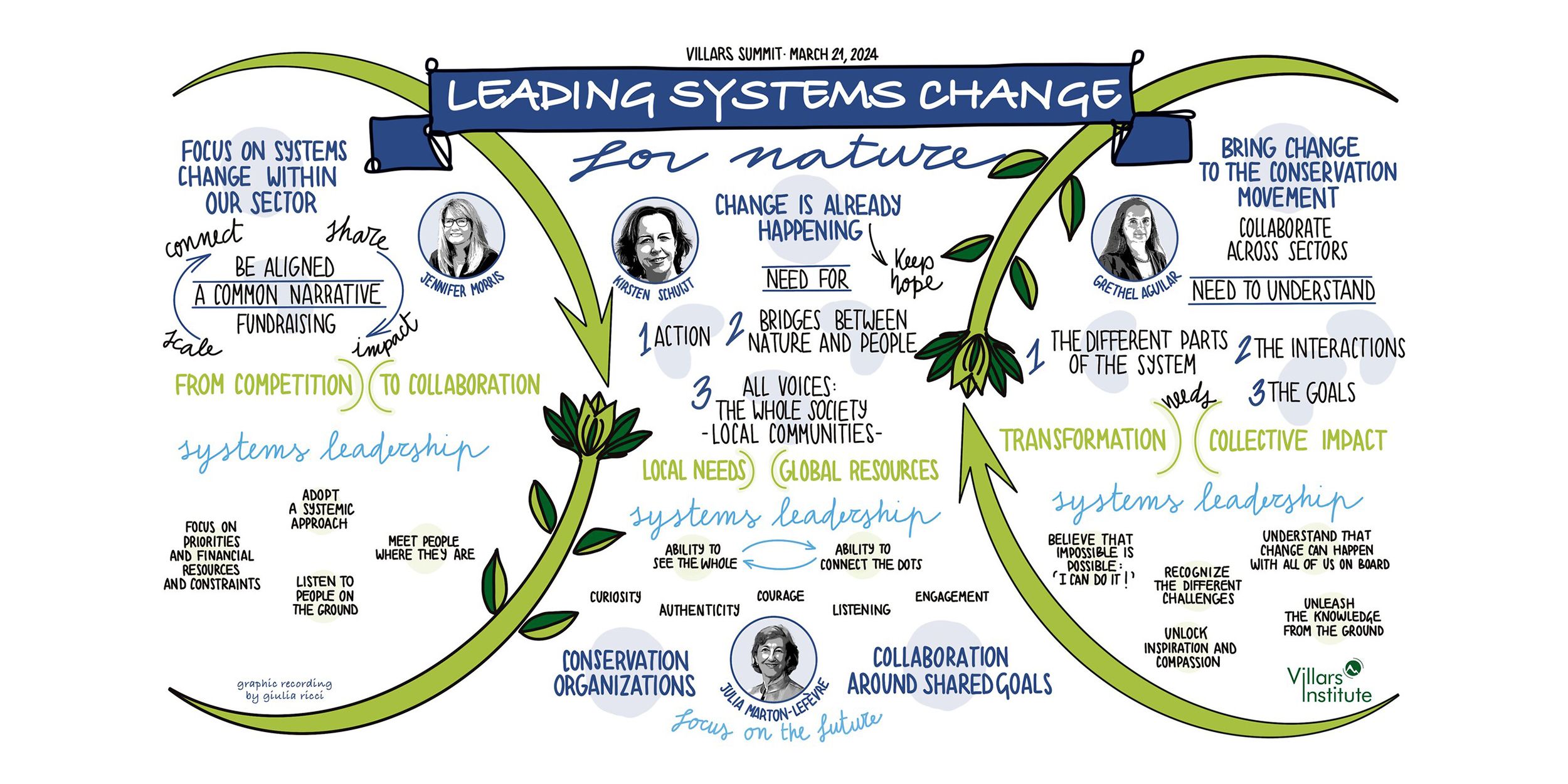The Ideas
This discussion emphasized the need for systems change and collaboration, underscoring the imperative of systemic thinking when envisioning the future and effecting change in the conservation movement. Participants highlighted the importance of uniting various organizations to address the challenges facing our planet's ecosystems. Reflecting on 76 years of the IUCN's efforts, it became evident that a departure from traditional approaches is necessary. Acknowledging that nature is intricately interwoven with every facet of society, participants emphasized the futility of discussing conservation in isolation. Instead, they advocated for an integrated approach, recognizing nature's integral role in sectors like health and humanitarianism. This necessitates a shift towards holistic societal engagement, including local communities and frontline voices.
The urgency of adopting a systemic approach to conservation was emphasized. It was stressed that there is a need to integrate conservation efforts into broader societal agendas, recognizing that the quality of land affects everyone and that humans are inseparable from nature. The importance of reevaluating conservation strategies through a systemic lens, acknowledging the interconnectedness of various elements within our ecosystems. The experts additionally noted that although change is underway, progress is often slow and nonlinear. They emphasized the immediate need for action, urging collaboration across sectors to elevate nature conservation on global agendas. It was suggested that engaging with local communities and marginalized voices to achieve sustainable impact be done alongside conservation efforts.
The discussion further delved into the essence of systemic leadership, with experts emphasizing the importance of holistic thinking, curiosity, authenticity, and courage in driving meaningful change. They stressed the need for cultural sensitivity and effective communication across diverse communities to foster collaborative efforts effectively. Participants also highlighted challenges such as staff safety and financial constraints, stressing the need for humility and innovative funding mechanisms. One expert's insight into restructuring debt to finance environmental initiatives, as demonstrated in the case of Seychelles, exemplifies the kind of systemic approach required.
In conclusion, the experts called for a concerted effort towards systemic change, recognizing that the conservation of nature is a shared responsibility that transcends boundaries. By fostering collaboration, embracing diverse perspectives, and reimagining traditional approaches, we can pave the way for a more sustainable future for generations to come.
The Perspectives
When asked about the significance of systems leadership in driving change, the responses underscored fundamental principles and practices essential for navigating complex challenges. The first expert emphasized the transformative power of belief in the possibility of change, stressing the importance of inspiration and compassion. They highlighted the need for an intergenerational, interdisciplinary approach, recognizing diverse perspectives and the wealth of knowledge within communities.
The second response underlined the importance of holistic thinking, curiosity, authenticity, and courage. It emphasised the necessity of active listening and cultural sensitivity in fostering collaboration and maintaining hope.
Participant comments further enriched the discussion, focusing on practical strategies for scaling impact, such as leveraging agricultural subsidies, private capital, and international commitments. There was a call to redirect financial resources towards critical areas like the Congo and the Amazon, recognizing the crucial role of indigenous communities in biodiversity conservation. Initiatives like unlocking funds at the WTO and exploring the pivotal role of systems leadership in driving transformative change offered a diverse array of perspectives essential for navigating the complexities of our time. One expert eloquently emphasized the profound impact of believing in the possibility of change, stressing the significance of inspiration and compassion in igniting collective action. They advocated for an inclusive, intergenerational, and interdisciplinary approach, recognizing the invaluable insights and expertise harbored within communities.
The conversation extended beyond environmental concerns to encompass broader socio-economic issues, including poverty alleviation, emissions reduction, and the imperative of transparent and accountable governance. Participants also raised concerns about the influence of digital media on younger generations, emphasizing the importance of fostering supportive environments characterized by trust, integrity, and openness.
In essence, the dialogue illuminated the interconnected nature of global challenges and underscored the urgency of collaborative, systemic approaches in addressing them. By embracing principles of systems leadership and fostering inclusive partnerships, societies can chart a course towards a more sustainable and equitable future for all.



